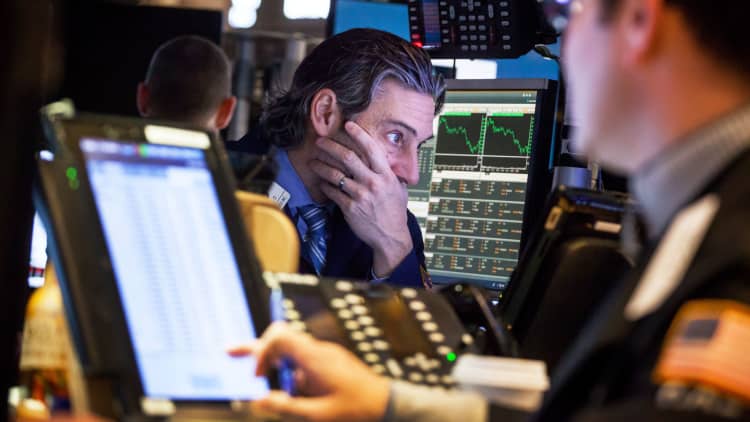
The average correction for the S&P 500 since World War II lasts four months and sees equities slide 13 percent before bottoming, according to analysis at Goldman Sachs and CNBC.
The broad market index fell into correction Friday and is 10.5 percent below the all-time intraday high it clinched on Sept. 21, 2018; the index is down 2.7 percent for the session. The Dow Jones Industrial Average, meanwhile, is more than 8 percent off its own record high and fell more than 500 points Friday at its lows. Wall Street defines a correction as down more than 10 percent from a high.
Bear markets — defined as a 20 percent fall in stocks — average a loss of 30.4 percent and last 13 months; it takes stocks 21.9 months on average to recover.
"It's a bad sign that oversold markets not bouncing," Michael Hartnett, Bank of America Merrill Lynch's chief investment strategist, wrote. "The inability of oversold markets to bounce suggests investors worried by either systemic financial market event or recession."
Tech has been especially slammed this week. The Nasdaq Composite dropped 1.7 percent Friday, led lower by Amazon and Google parent company Alphabet, which dropped 6.7 percent and 2.2 percent, respectively. Both tech giants released quarterly earnings that topped analyst estimates, but revenues fell short.
"Asset carnage is cross-market and has infected U.S. tech leadership," Hartnett pointed out, adding that the asset class is oversold. He also named lower oil and wider credit spreads as recession "tells" and reasons to stay bearish.
Hartnett warned last month that the "Great Bull" market that began at the bottom of the financial crisis is dead. The strategist highlighted rising interest rates, slower economic growth and excessive amounts of debt.



